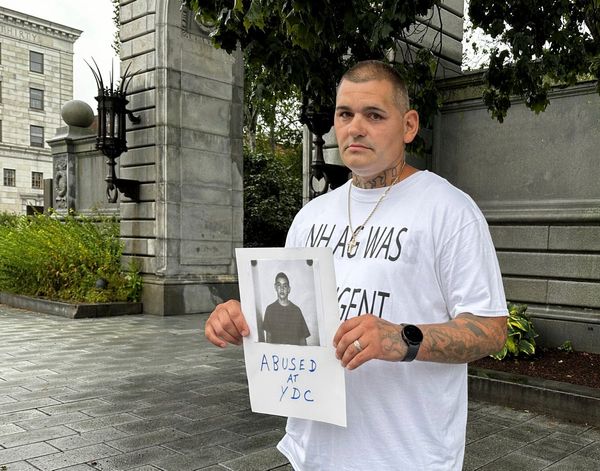
Kayla Levering’s twin daughters just celebrated their first birthday, a momentous milestone for a family who just survived a challenging year involving long stays in the neonatal intensive care unit: two months for one daughter, five months for the other.
It was a trying time, filled with surgeries and procedures and complications – and it was made more stressful by the pressure Levering felt to produce more breast milk for both babies. When a nutritionist finally mentioned donor milk, she felt as though a light had pierced the dark.
“A godsend, really,” is Levering’s description of the donations she now receives from Mothers’ Milk Bank in Austin, Texas, where she lives. “For my girls and the rough start that they had and everything, it’s just been really great to have this option to give them the best nutritional value that I can.”
Levering isn’t alone. Across North America, milk banks are seeing a rise in interest. Unfortunately, they’re also seeing a plunge in supply, which has them sounding the alarm that shortages are imminent.
“Demand has been surging in hospitals, primarily,” said Lindsay Groff, the executive director for the Human Milk Banking Association of North America (HMBANA). “At the same time, supply has dipped.”
At all 31 milk banks in the US and Canada associated with HMBANA, milk donations are declining, down as much as 20% in some places.
Milk bank directors say they’re not at a crisis point yet, but they will be if shortages continue.
“There’s no need to panic,” Groff said. But if “you feel compelled to help someone [by donating breast milk] – now is the time. Now, now, now, we need help now.”
Donated breast milk can help medically fragile infants – those that are “too small and too soon and too sick”, as Kim Updegrove, executive director of Mothers’ Milk Bank at Austin, puts it – to overcome a range of potentially devastating conditions, from prematurity complications to heart and stomach problems. Necrotizing enterocolitis, an inflammation of the intestines, is a leading cause of death for premature babies, but breast milk can help prevent it.
“Babies that are in the Nicu [neonatal intensive care unit] do so much better if they have human milk,” said Denise O’Connor, executive director of the Mid-Atlantic Mothers’ Milk Bank. “They have less infections, less sepsis, less risks for retinopathy of prematurity, which is a major cause of blindness in preterm babies.”
Yet at the milk bank in Austin, for example, the number of donors dropped by 30% and the quantity of milk donated fell by 20% in 2021. “We are back to a number of milk donors that we haven’t seen here in Austin since 2015,” Updegrove said.
“This comes after a year of tremendous expansion of both milk donors and milk volume donations, which happened in 2020 as the pandemic gained momentum.”
Early in the pandemic, milk banks saw an “almost unprecedented” level of donations, Groff said. More working parents were spending time at home, allowing them to more easily nurse their children instead of giving them bottles. That helped them build their milk supply; some also kept pumping to save up milk for the return to childcare.
Soon, facing full freezers, parents turned to donations.
“Also, the pandemic really inspired people,” O’Connor said. “People want to be the helpers.”
Now, many parents have headed back to work – and to once again saving up frozen milk for daycare.
“Supply has also dipped because people are going back to work. There’s a tremendous amount of stress,” Groff said.
Many workplaces are also unequipped to deal with the needs of breastfeeding parents. Many nursing parents are back to stealing away for a few minutes to pump in supply closets or empty offices.
“We have the issues of employers not understanding how lactation happens and how intermittent the need to express your breast milk happens throughout the workday. And the separation of the mothers from their infants,” Updegrove said. “We’re back to ground zero, with moms back to work and us not budging the culture.”
The length of the pandemic may also be wearing even on those with the best intentions.
“As we enter, now, a third year of dealing with a pandemic, personal stress levels are high,” Updegrove said. “The difficulty of not knowing whether you’re going to the office tomorrow or whether school will be opened or whether daycare will be opened or whether you or your child or children will be exposed to Covid tomorrow or develop coughs for which you have to be suspicious – that’s all a really difficult way to live.”
Meanwhile, the pandemic has increased the need for donor milk. Studies have shown that contracting Covid-19 during pregnancy when you’re not vaccinated increases the chance of having a premature baby, who might then benefit from donor milk. Parents who become very ill from Covid are often unable to care for their babies or to pump milk for them.
Parents might also not be able to spend as much time in Nicu with their infants and with specialists because of safety precautions, making it more difficult to establish a habit of breastfeeding.
“Giving birth in a pandemic is just one of the hardest, most isolating experiences. And when you’re having trouble breastfeeding your baby, it’s really hard to get access to resources that feel safe,” said Sara Muncey, parent of a 10-month-old baby.
When Muncey’s daughter was born three weeks early, the Nicu team said donor milk might help her gain weight. “That was my very first time having ever heard that donor milk was a thing,” she said.
Muncey was able to pump successfully, but she recalled those words months later when she faced a freezer full of extra milk, looked up her local milk bank and began donating regularly in September.
“I know how hard it is to become a mom during this pandemic. I know how stressful it is to feed your baby,” Muncey said. “If I can sit here in my chair and pump for 45 minutes and have extra to give a Nicu mom just a little bit of a breath, like a sigh of relief, even for just a moment – of course I’m going to do that. It is my honor to be able to do that for somebody else.”







